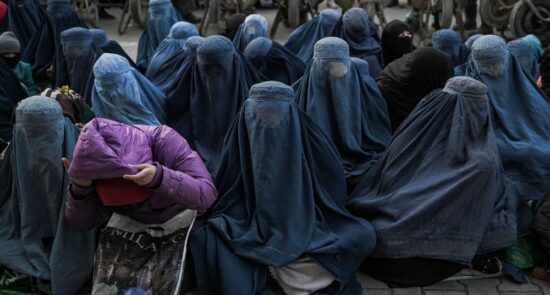Afghanistan, Politics, Security, Social updated: March 8, 2025
Short Link:Widespread Violation of Women’s Rights in Afghanistan; United Nations Calls for International Prosecution of the Taliban
Volker Turk, the United Nations High Commissioner for Human Rights, described the systematic discrimination by the Taliban against Afghan women and girls as unprecedented globally during the 58th session of the Human Rights Council. He stated that Afghanistan is the only country where gender-based discrimination is enforced with the support of the Taliban government. These statements come at a time when the European Union and the UN Special Rapporteur on Human Rights have also accused the Taliban of crimes against humanity and called for international prosecution of these actions.
Systematic Discrimination by the Taliban Against Women
During the session, Volker Turk emphasized that Afghan women have been deprived of their basic rights, including freedom of movement, education, and work, and are effectively imprisoned in their homes.
Since retaking power in Afghanistan in August 2021, the Taliban has imposed extensive restrictions on women and girls, including:
Banning education for girls above the sixth grade
Banning women from working in government offices and non-governmental organizations
Severe restrictions on travel without a male guardian and access to public spaces such as parks, stadiums, and beauty salons
UN and European Union Reactions
Richard Bennett, the UN Special Rapporteur on Human Rights for Afghanistan, voiced support for recognizing gender apartheid as a crime against humanity, referring to the systematic suppression of Afghan women.
The European Union also condemned the systematic violation of women’s rights by the Taliban in a statement and warned that this discriminatory treatment could constitute a crime against humanity under the Rome Statute.
The Taliban’s Morality Law as a Tool for Women’s Suppression
In its statement, the European Union referred to the Taliban’s Morality Law and described it as a tool for suppressing women’s rights and enforcing the group’s extremist policies.
Despite these criticisms, the Taliban claims that they have ensured women’s rights in accordance with Islamic Sharia and Afghan culture and view international intervention as interference in the country’s internal affairs.
With the continued repressive policies of the Taliban against women, international pressure for the legal prosecution of the group under international law is growing. Now, the United Nations, the European Union, and human rights organizations are calling for an investigation into the Taliban’s actions as crimes against humanity, but the practical response of the international community to this humanitarian crisis remains uncertain.










